© 2026 ALLCITY Network Inc.
All rights reserved.

The Cactus League is back, fruit trees are blooming and the mercury topped 90 degrees sooner than anyone expected. Sure sounds like March in Arizona.
The lockout trimmed the Cactus League by three weeks, and the Diamondbacks’ Opening Day matchup against the San Diego Padres is now less than two weeks away.
The Diamondbacks are 3-5 in spring training, and, well, that means nothing. Ketel Marte is just 2-for-11 at the plate so far, which also means nothing. When it comes to the Cactus League, a lot of numbers mean nothing.
But that is not to say all is vanity this time of year. In a little more than a week, we’ve already learned a lot about the 2022 Diamondbacks.
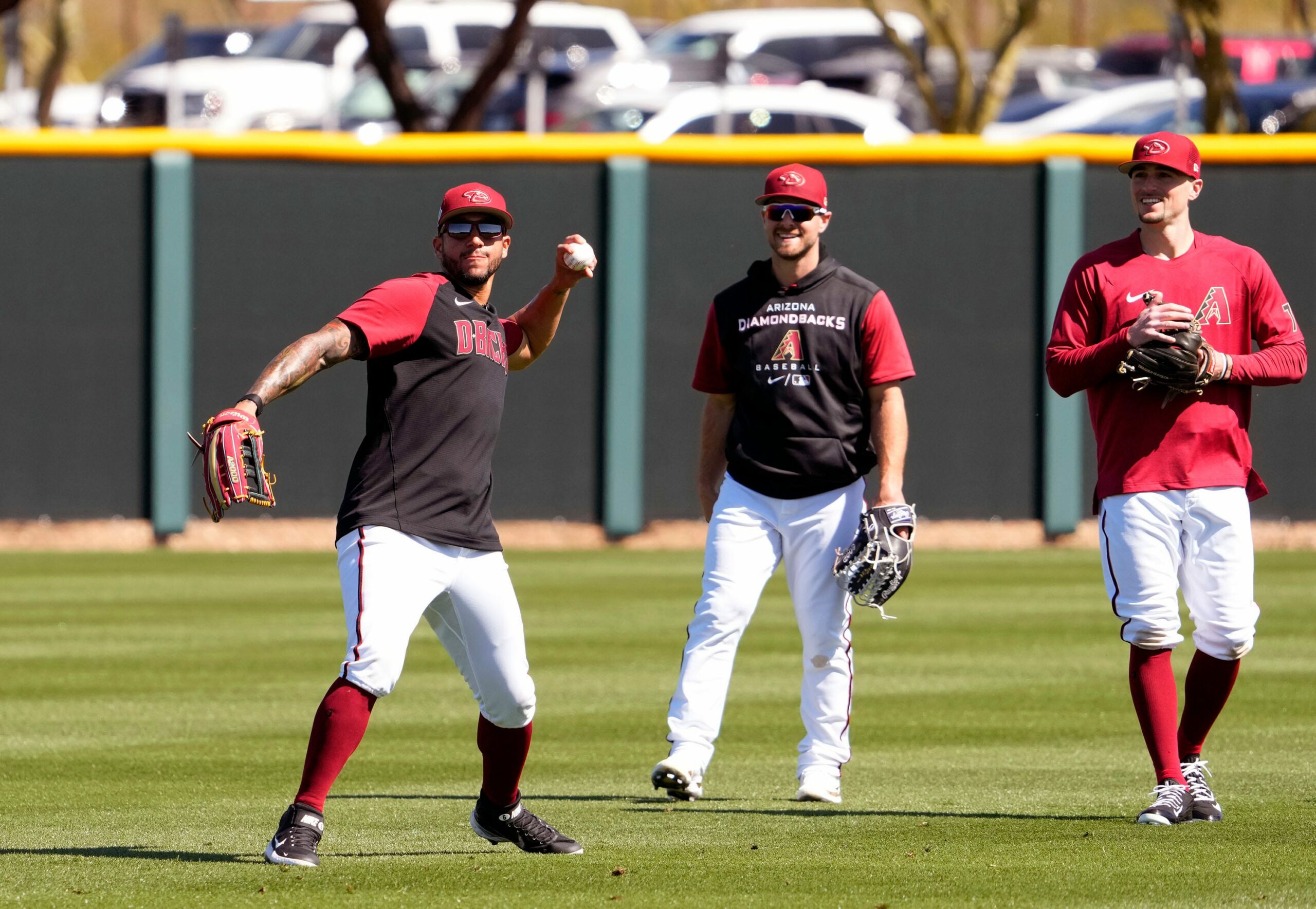
1. David Peralta’s new hitting mechanics already paying dividends
At the age of 34, outfielder David Peralta has stolen the show so far in the Cactus League, showing off several mechanical adjustments he made while working with fellow Florida resident Michael Brantley this offseason.
Peralta is planting his front foot earlier and the motion is noticeably less pronounced than before. He’s also setting up in a lower, more athletic position. Peralta hopes these changes will help him time fastballs better and improve on his .259/.325/.402 batting line from last season.
The early returns are hard to dispute. He is 4-for-11 with two doubles and two homers in the Cactus League.
It’s easy to forget that Peralta won a Silver Slugger award back in 2018, when he hit 30 homers and drove in 87 runs. A free agent at season’s end, Peralta has one last shot at showing he is still a worthy big-league regular moving forward.
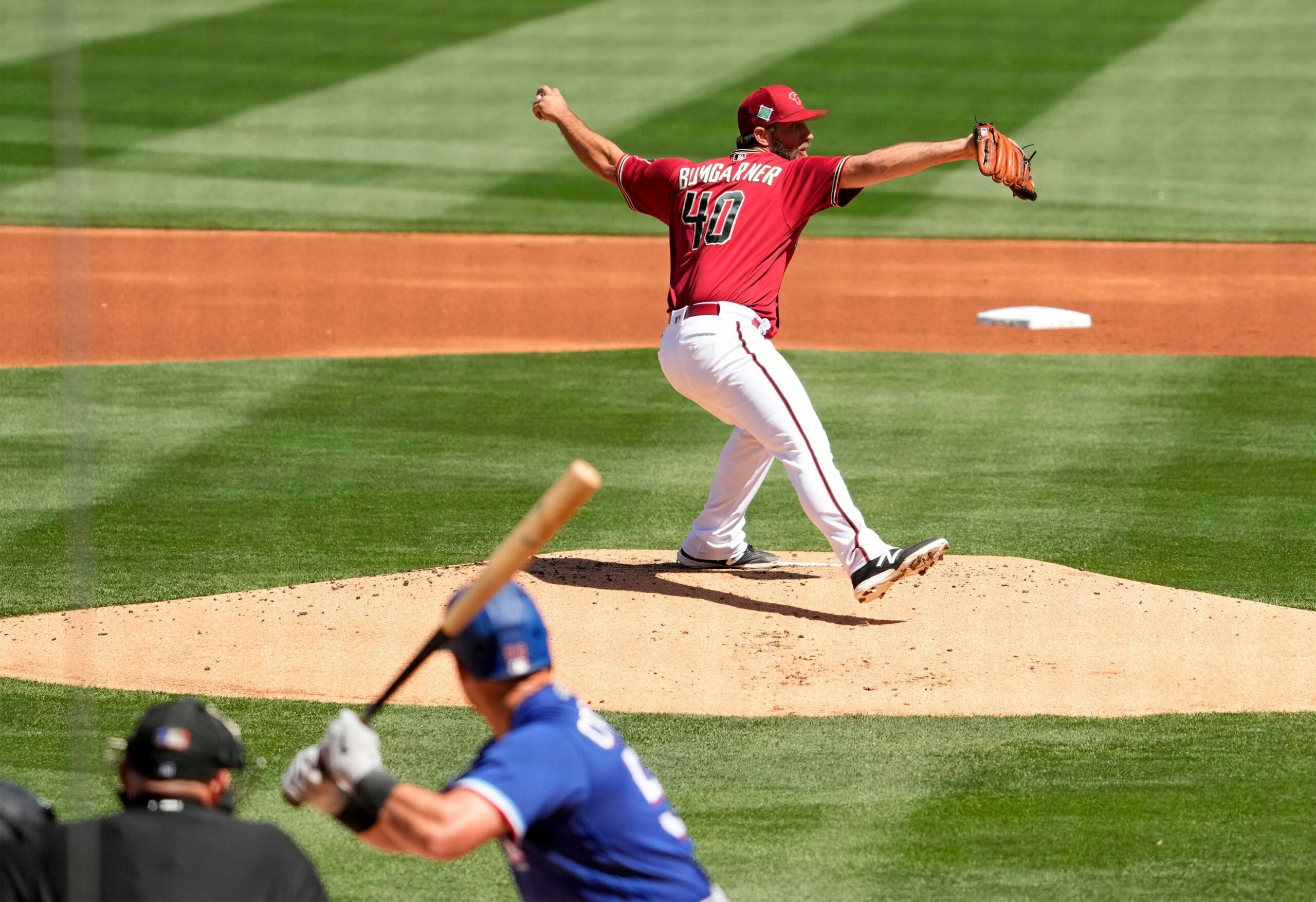
2. Madison Bumgarner threw how fast?
Yes, I fully acknowledge that I wrote last week that we shouldn’t give much thought to Madison Bumgarner’s velocity readings this spring, but let’s not pretend he didn’t turn heads by touching 93 MPH in his first Cactus League outing.
Since joining the Diamondbacks, Bumgarner has thrown 1,024 four-seam fastballs in regular-season games. Only 11 of them (roughly one percent) were 93 MPH or higher, and 10 of those came in the same game.
If Bumgarner can find a way to average 91-92 MPH on his four-seamer — which he essentially did his entire career in San Francisco — that might be enough to help him rediscover some of his past success. He averaged 90.4 MPH last year, so it doesn’t seem unattainable.
Granted, adding a tick to one’s fastball velocity isn’t guaranteed to bring results, and Bumgarner experienced that firsthand on Tuesday. He allowed three runs on five hits over 2.1 innings, including two home runs.
Bumgarner’s vulnerability to the long ball is well-documented at this point. Since joining the D-backs, he’s allowed 37 homers in 188 innings. But again, stuff is more important than results this time of year, and his increased velocity is the biggest takeaway on that front.
It’s worth noting that Bumgarner’s throwing schedule has him set up to start on Opening Day. With the team remaining cautious with Zac Gallen’s injury, that’s not surprising.
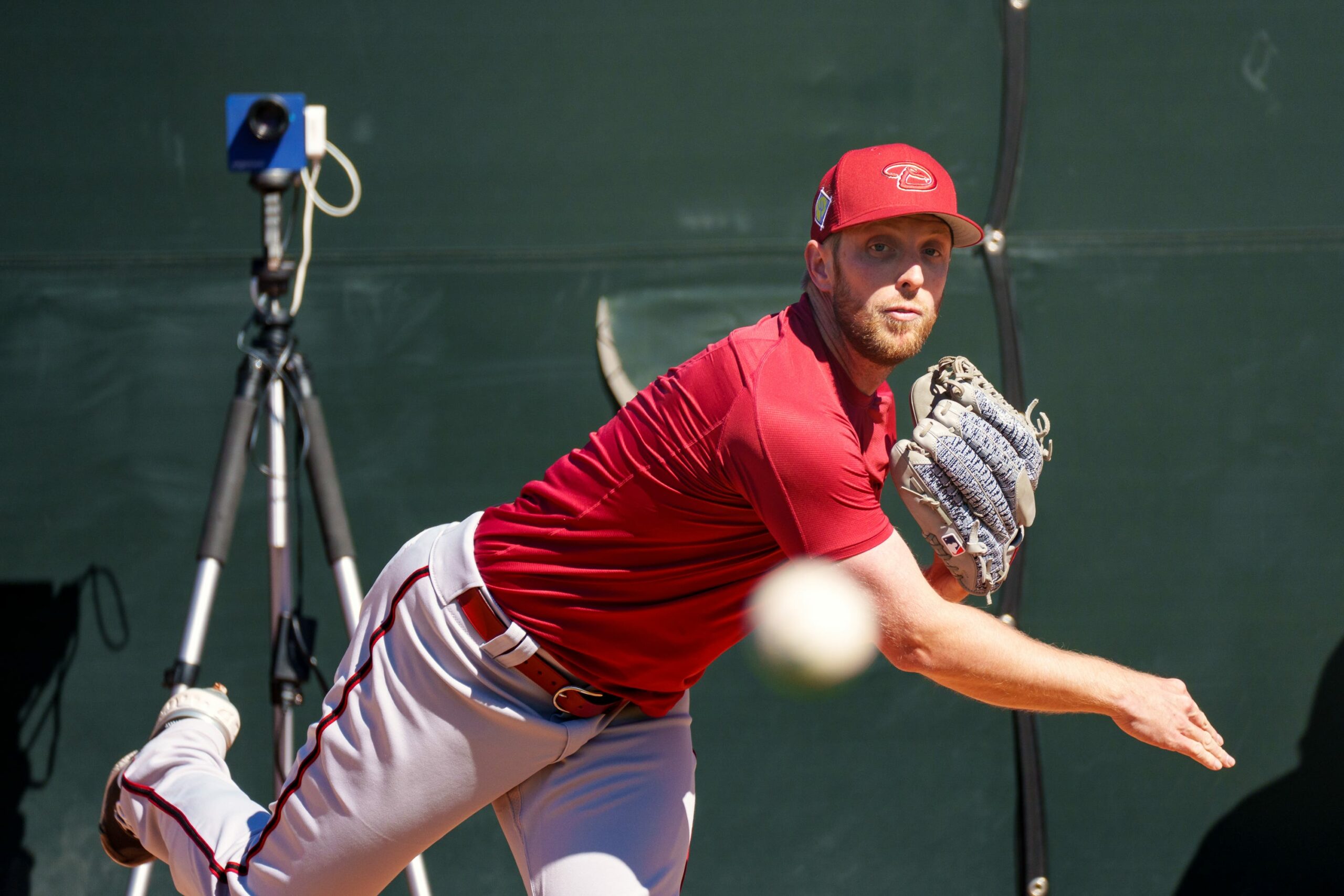
3. Merrill Kelly looks phenomenal
Speaking of increased velocity readings, Merrill Kelly touched 95 MPH in his first Cactus League outing of the season and his changeup was the best we’ve seen in his career. He struck out eight of the nine batters he faced.
Like Peralta, this is an important year for Kelly, whose contract will expire at the end of the season. He’s arguably the best signing of general manager Mike Hazen’s tenure, but he’s not going to pitch for $5.25 million for long.
Despite undergoing thoracic outlet surgery in fall of 2020, Kelly has been relatively durable throughout his career with an average of nearly six innings per start. He’s going to be a hot commodity next winter — and perhaps even sooner, if the D-backs entertain the idea of moving him at the trade deadline.
Based on Kelly’s throwing schedule, he is likely to slot in behind Bumgarner as the D-backs’ starter in the second game of the season.
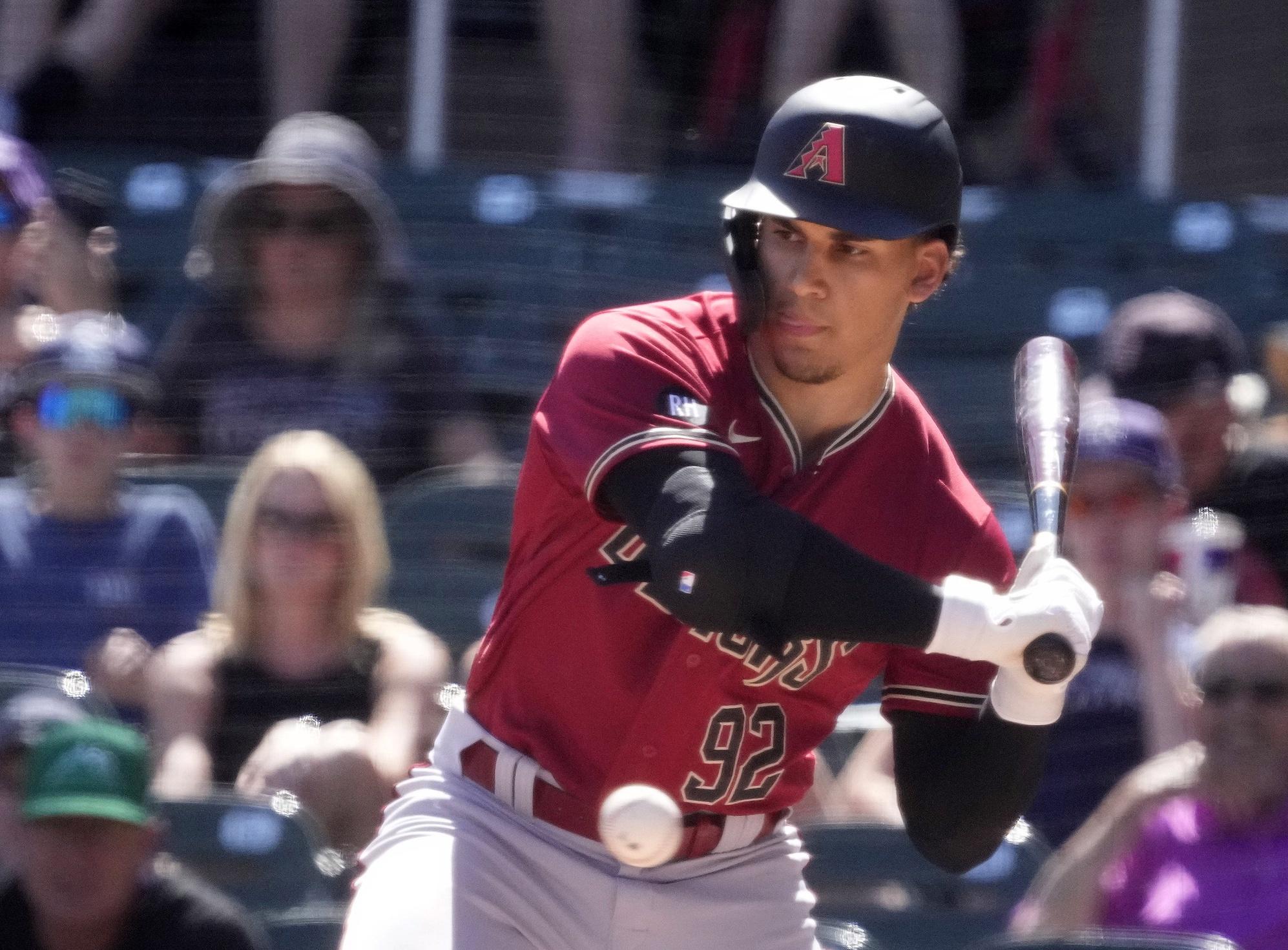
4. Alek Thomas slow to start
It was always going to be a long-shot for outfield prospect Alek Thomas to open the season as the team’s everyday center fielder, but Mike Hazen did say he’s in the mix for that role several weeks ago. Unfortunately, Thomas hasn’t done much to help his case so far.
In six games, Thomas is 3-for-16 with two doubles, one walk and six strikeouts. To be fair, the more recent of those doubles was a beauty.
As a future cornerstone of the team, it doesn’t make sense for the Diamondbacks to bring up Thomas as a bench bat. He should play every day. If Triple-A is the only place that can happen, that’s where he’ll go.
Of course, we’re talking about a very small sample size so far, and his batting line could change in a hurry. He’s one 3-for-4 game from having a .300 Cactus League batting average. Stay tuned.
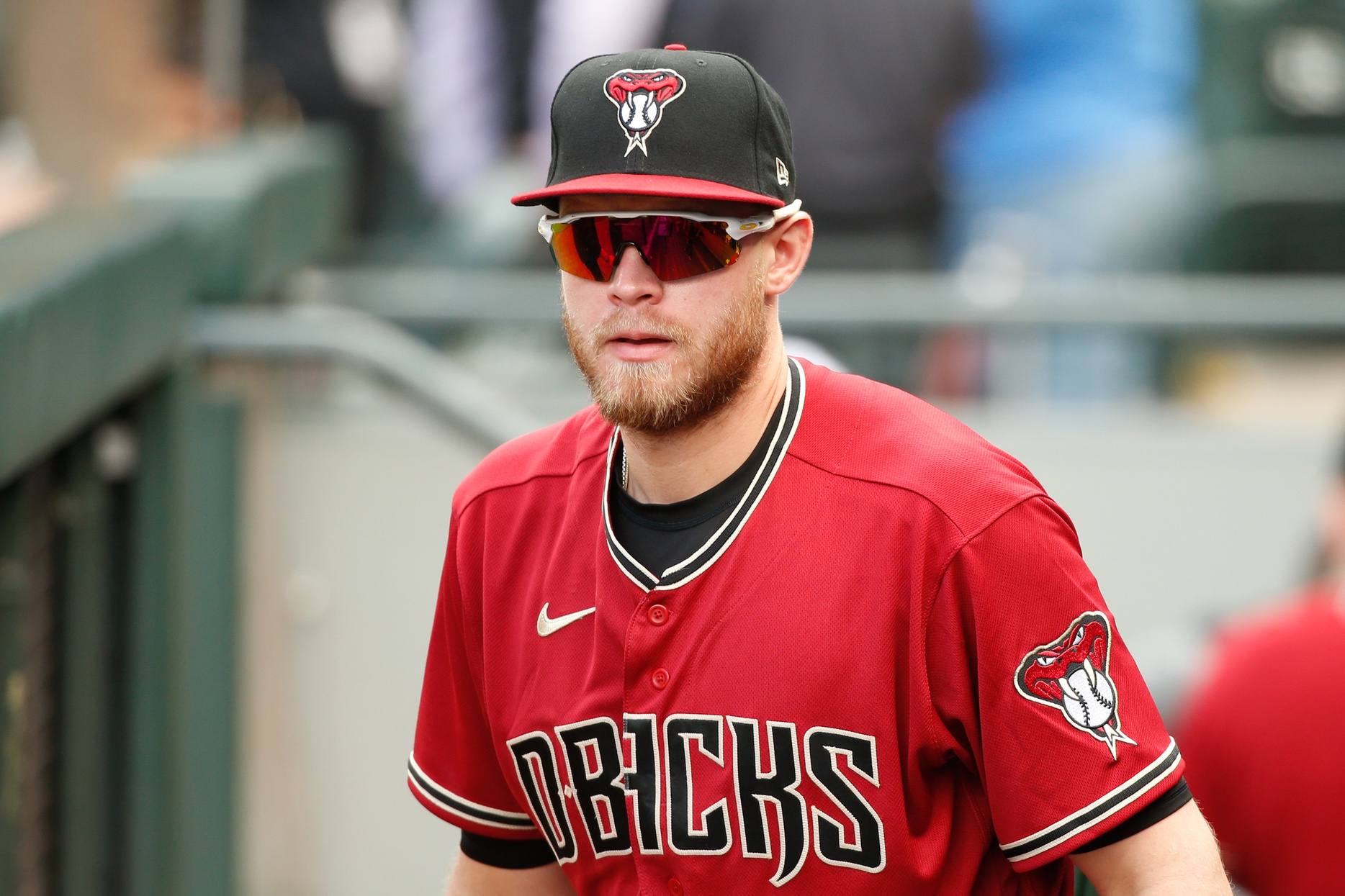
5. Seth Beer might be the perfect DH
Presumably, few teams were happier to see the designated hitter added to the National League than the Diamondbacks, whose acquisition of defensively-challenged Seth Beer looked like an odd fit for an NL team back in 2019. Now, Hazen looks like a genius.
Okay, maybe that’s an exaggeration for a guy who has all of 10 major league plate appearances, but Beer has lived up to the billing so far this spring. He leads all Diamondbacks hitters with six hits in the Cactus League, including a homer and two doubles.
After he dislocated his shoulder while diving for a ball last year, the team has little reason to experiment with Beer’s defense anymore, particularly with 2019 Gold Glove finalist Christian Walker also on the roster.
Beer is here because he rakes, and it’s not crazy to think he could find himself in the middle of the D-backs’ lineup before long. All hail the NL DH.
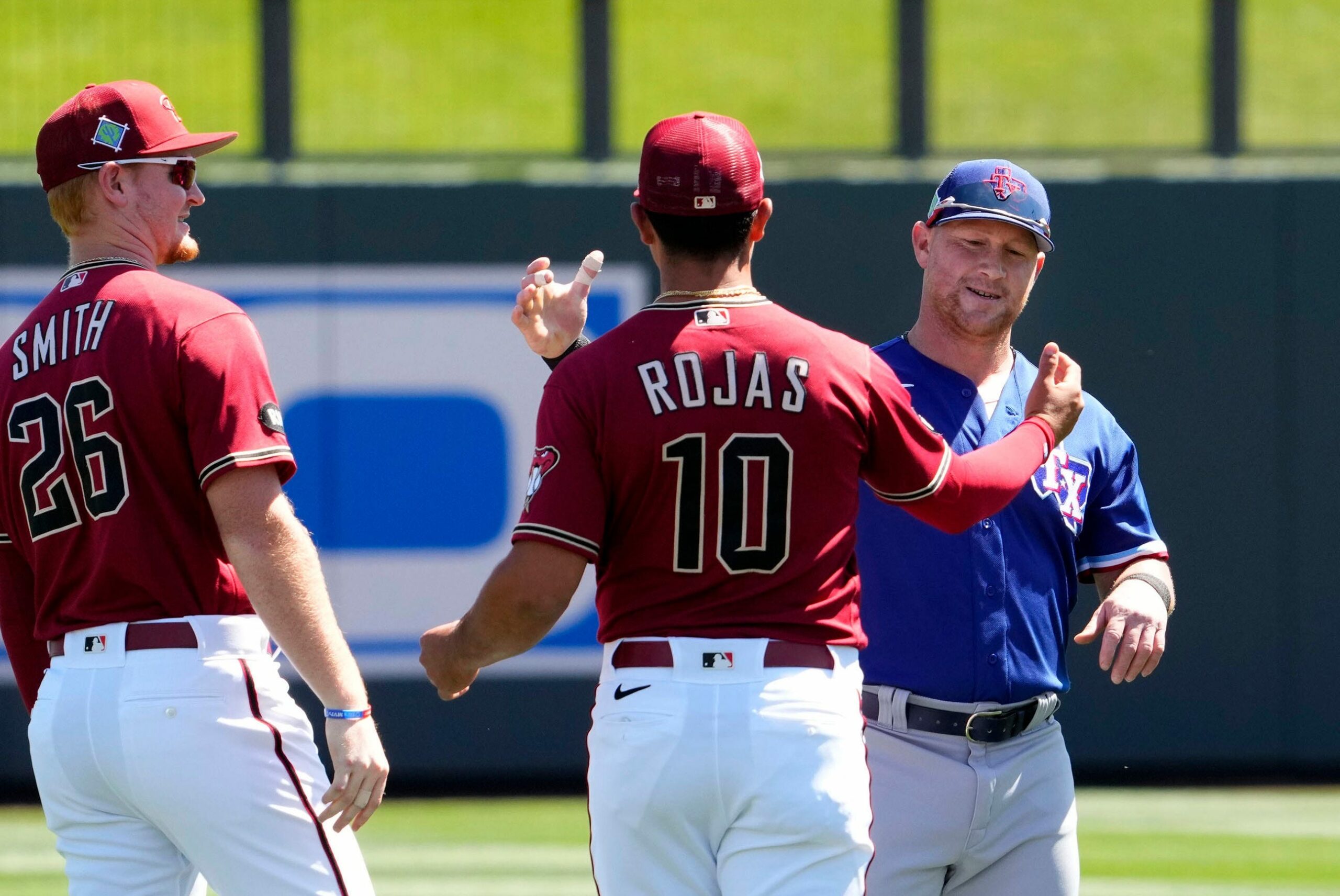
6. Josh Rojas, third baseman?
Unless the Diamondbacks acquire one in the next 12 days leading up to Opening Day, it appears Josh Rojas will take the majority of the at-bats at third base this season.
Hazen told reporters earlier this month that the team suffered from moving players around excessively last year. Rojas was one of few who moved around the diamond competently, but it’s unclear who would man third base if Rojas didn’t, with neither Josh VanMeter nor Drew Ellis inspiring so far in the Cactus League.
If the team wants Rojas to stay at one position, third base is an odd fit. His bat doesn’t profile particularly well there, and he logged just 14 games at third base in 2021, posting minus-2 defensive runs saved with a minus-0.7 ultimate zone rating. The sample is so small (66 innings) that those numbers don’t mean much, but it’s not his natural position and it may take time to adjust.
Rojas has played two games at third base and one at shortstop this spring. He’s off to a strong start offensively, going 3-for-8 with two homers and a double. Wherever he plays, he’s going to be a big part of this Diamondbacks team, coming off a season in which he was arguably the team’s most consistent position player.
Top photo: David Peralta (Bruce Yeung/Yeung Photography)
Follow Jesse Friedman on Twitter
Get Arizona's Best Sports Content In Your Inbox!Become a smarter Arizona sports fan with the latest game recaps, analysis and exclusive content from PHNX's writers and podcasters!
Just drop your email below!
Comments
Share your thoughts
Join the conversation



